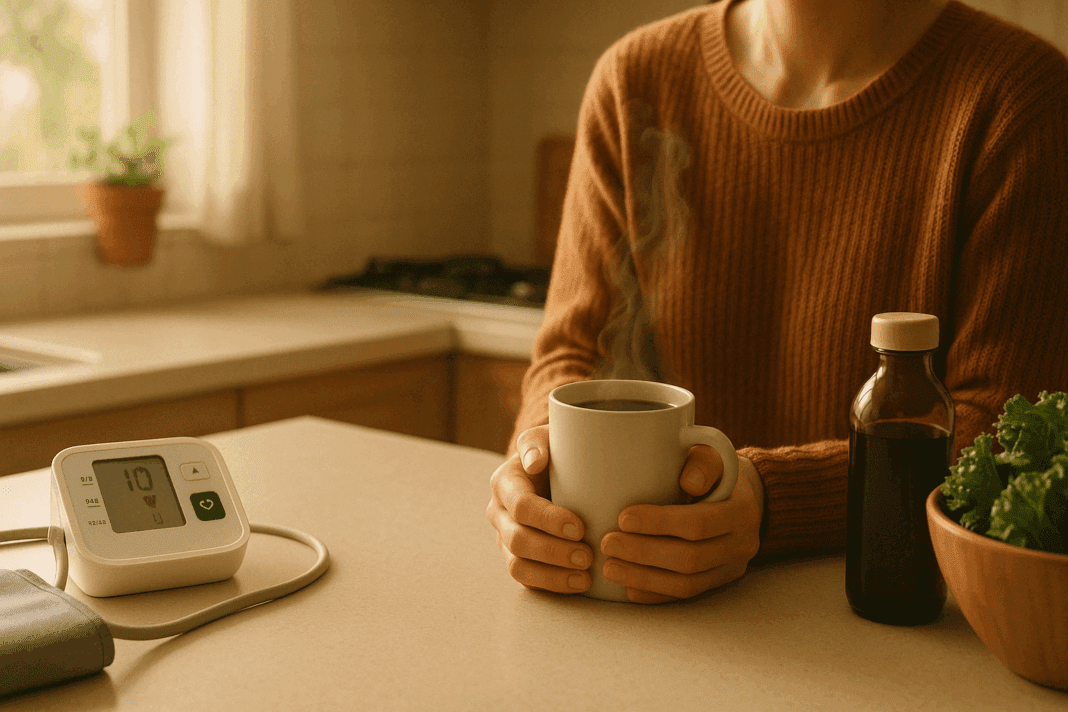In a world where coffee is practically a cultural cornerstone, health-conscious individuals are increasingly scrutinizing what goes into their cups. As concerns over high blood pressure and cardiovascular health continue to rise, many have turned to decaffeinated coffee as a seemingly safer alternative to its fully caffeinated counterpart. Yet, questions remain: can decaf coffee raise blood pressure? Does it carry cardiovascular implications despite its low caffeine content? Or is it a heart-smart swap worth embracing without worry? Understanding these concerns through the lens of medical science, consumer experience, and nutritional insight is key to making informed choices about our daily rituals. This article explores what current research reveals about how decaf coffee affects blood pressure, and what that means for people concerned about hypertension and heart health.
You may also like: Sudden Spikes in Blood Pressure: What Can Cause a Sudden Increase and When to Seek Medical Attention
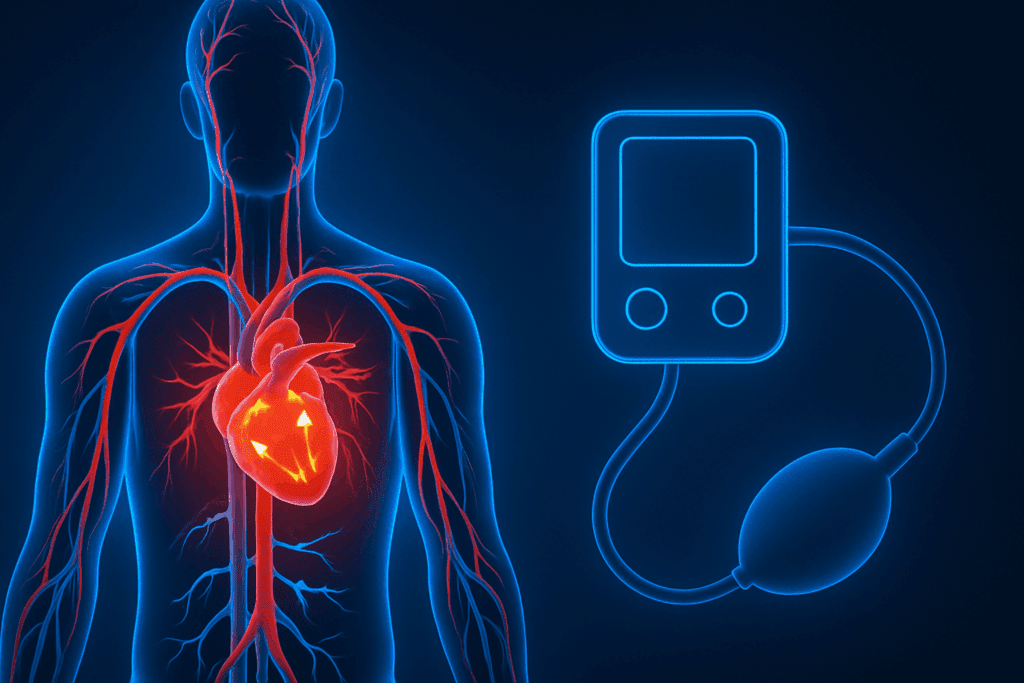
Understanding the Basics of Blood Pressure and Cardiovascular Health
To appreciate the debate surrounding decaf coffee and blood pressure, it’s essential to first understand what blood pressure is and why it matters. Blood pressure is the force exerted by circulating blood against the walls of the arteries. It’s measured in millimeters of mercury (mmHg) and presented as two numbers: systolic (pressure during heartbeats) and diastolic (pressure between heartbeats). Healthy blood pressure typically falls below 120/80 mmHg. Chronically elevated blood pressure, or hypertension, can increase the risk of serious cardiovascular conditions, including heart attacks, strokes, and heart failure.
Numerous lifestyle factors influence blood pressure—diet, physical activity, stress levels, and substance use among them. For years, caffeine has been flagged as a contributor to acute increases in blood pressure, though long-term effects remain debated. As a result, many people at risk of hypertension reduce their caffeine intake, turning to decaf alternatives in hopes of sidestepping those risks. But does decaf coffee raise blood pressure in the same way? Or does its minimal caffeine content render it harmless in this regard?

What Exactly Is Decaf Coffee?
Decaf coffee is simply coffee that has had most of its caffeine removed. The decaffeination process typically eliminates about 97% of the caffeine, though the precise amount can vary depending on the method used and the type of coffee bean. Common decaffeination techniques include the Swiss Water Process, carbon dioxide extraction, and solvent-based methods. While decaf retains the flavor profile of traditional coffee—albeit often with subtle differences—it’s perceived as a gentler option for those sensitive to caffeine’s stimulating effects.
Despite its name, decaf coffee is not completely caffeine-free. A typical 8-ounce cup of decaf contains between 2 to 5 milligrams of caffeine, compared to the 70 to 140 milligrams in a regular cup of coffee. For individuals particularly sensitive to caffeine or advised to reduce intake due to hypertension or heart disease, even this small amount may prompt concern. But the key question remains: does decaf coffee affect blood pressure enough to warrant medical attention or lifestyle changes?

Decaf Coffee and Its Impact on Blood Pressure: What the Studies Show
Scientific research exploring whether decaf coffee affects blood pressure has produced mixed but increasingly nuanced results. Some earlier studies suggested that decaf coffee might still have modest cardiovascular effects, potentially due to compounds other than caffeine. However, more recent and methodologically rigorous investigations have largely reassured the public that decaf coffee poses minimal risk to blood pressure in most healthy adults.
One study published in the “American Journal of Clinical Nutrition” examined the effects of both caffeinated and decaf coffee on a group of healthy individuals. It found that while regular coffee caused a short-term spike in blood pressure, decaf coffee did not produce a statistically significant increase. These findings suggest that caffeine is the primary driver behind the hypertensive effects of coffee, not the beverage itself.
Another clinical trial conducted by researchers in Italy focused on middle-aged participants with borderline hypertension. Those who consumed decaf coffee daily for several weeks showed no elevation in their systolic or diastolic blood pressure readings compared to a control group. This aligns with the broader understanding that caffeine, not other coffee compounds, is primarily responsible for acute blood pressure changes.
However, a few studies have pointed to a potential, albeit very slight, effect of decaf on blood pressure. Some researchers hypothesize that compounds such as chlorogenic acids and diterpenes, which are still present in decaf coffee, may have subtle cardiovascular influences. Still, these effects are generally considered negligible for most individuals.
Why the Misconception Exists: Caffeine Confusion and Nutritional Complexity
The notion that decaf coffee raises blood pressure likely stems from confusion around caffeine’s role in cardiovascular health. For years, caffeine has been associated with increased heart rate, elevated blood pressure, and arrhythmias in sensitive individuals. These associations have led many to lump all forms of coffee into the same risk category, regardless of their caffeine content.
Yet, coffee is a complex beverage, containing over a thousand bioactive compounds. Even when caffeine is removed, substances such as polyphenols, antioxidants, and small amounts of potassium remain. While these compounds can benefit heart health in some contexts, they may also interact with individual physiology in unexpected ways. As a result, some people continue to ask, “Can decaf coffee raise blood pressure?”—a question rooted more in caution than in concrete evidence.
It’s also worth noting that the way decaf coffee is prepared can influence its health impact. Additives such as cream, sugar, or flavored syrups can introduce extra calories, saturated fats, and sodium—all of which can indirectly affect cardiovascular health. Therefore, when evaluating whether decaf coffee affects blood pressure, one must also consider the full nutritional context of the beverage being consumed.
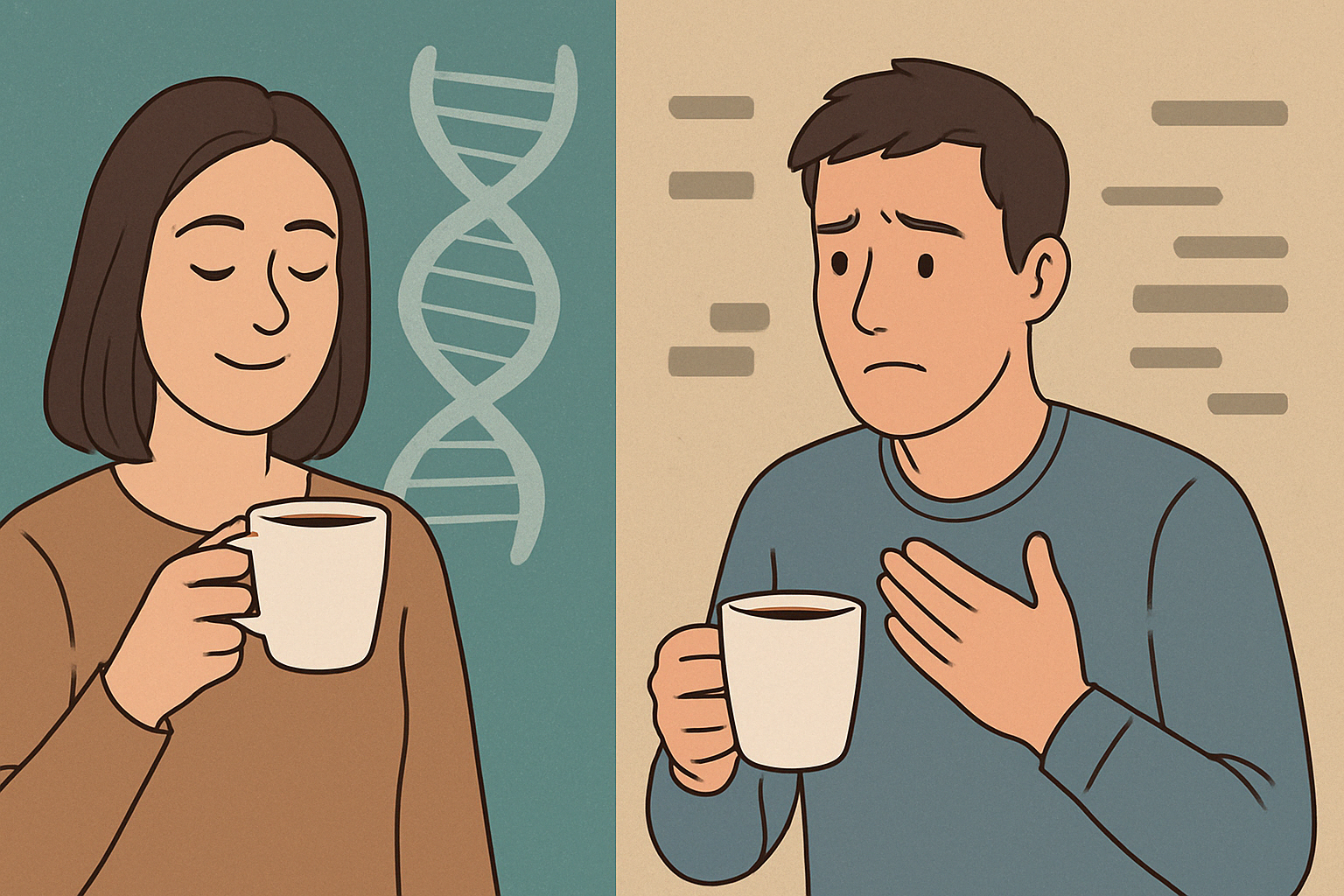
Individual Variability: Genetics, Sensitivities, and Underlying Conditions
While the general consensus among medical researchers is that decaf coffee does not significantly raise blood pressure, individual variability must be acknowledged. Some people are genetically predisposed to metabolize caffeine more slowly, meaning that even small amounts found in decaf could produce outsized effects. In individuals with extreme caffeine sensitivity, a few milligrams might be enough to trigger palpitations, anxiety, or minor blood pressure changes.
Furthermore, people with preexisting cardiovascular conditions—such as arrhythmias, hypertension, or a history of heart disease—may be advised by their healthcare providers to avoid stimulants altogether. In such cases, erring on the side of caution with even decaf options is understandable. However, blanket avoidance is not typically recommended unless specific adverse effects are observed.
It is also important to differentiate between acute and chronic effects. A person may experience a temporary rise in blood pressure after consuming any beverage—due to factors like stress, temperature, or hydration status—without this indicating a long-term risk. Thus, one isolated blood pressure reading after drinking decaf coffee does not necessarily support the conclusion that decaf coffee affects blood pressure in a harmful or lasting way.
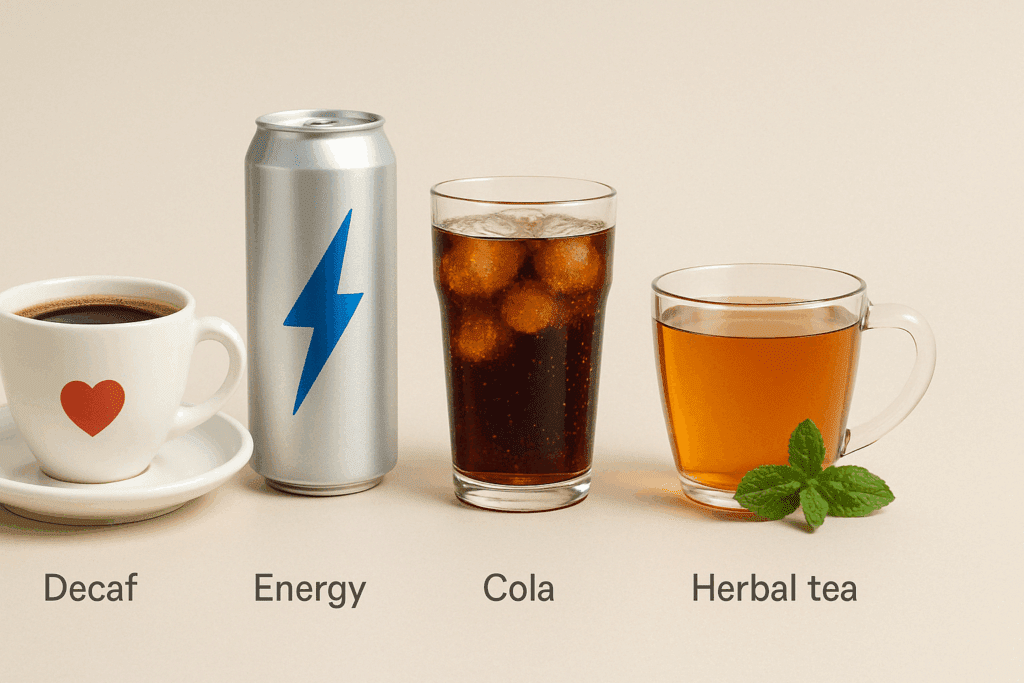
Comparing Decaf Coffee with Other Common Beverages
To put the question into perspective, it helps to compare decaf coffee with other popular beverages known to influence cardiovascular health. Energy drinks, for instance, are often loaded with caffeine, sugar, and other stimulants such as taurine and guarana, making them far more likely to cause blood pressure spikes than decaf coffee. Similarly, sugary sodas and high-sodium broths may indirectly affect blood pressure due to their influence on insulin sensitivity and fluid retention.
Green and black teas, while generally lauded for their health benefits, still contain caffeine and can modestly raise blood pressure in sensitive individuals. Even certain herbal teas may have stimulating properties or interact with medications used to treat hypertension. Compared to these options, decaf coffee presents a relatively benign profile, particularly when consumed in moderation and without calorie-laden additives.
For those who enjoy the ritual of sipping a warm beverage but wish to avoid any cardiovascular stimulation, herbal teas such as chamomile or rooibos may offer a caffeine-free and heart-friendly alternative. Still, for the majority of people, moderate consumption of decaf coffee remains a reasonable choice within a heart-healthy lifestyle.
Practical Considerations: Choosing the Right Decaf Coffee for Your Health
Not all decaf coffees are created equal. The decaffeination process can vary in its impact on flavor, chemical composition, and potential health effects. For health-conscious consumers, it’s wise to seek out decaf coffee made using water-based or carbon dioxide methods, as these are generally considered safer and more environmentally friendly than solvent-based techniques.
Additionally, opting for organic or sustainably sourced beans can help minimize exposure to agricultural chemicals, which some studies suggest may have long-term health consequences. For individuals managing high blood pressure, it’s also advisable to monitor what is added to the coffee. Plant-based milk alternatives, unsweetened flavorings, and low-sodium options can help preserve the cardiovascular benefits of decaf coffee.
Some people may benefit from tracking their blood pressure readings before and after coffee consumption to determine if any changes occur. While the majority will likely observe no notable differences, self-monitoring can provide peace of mind and support more personalized health decisions. Always consult with a healthcare professional before making significant dietary adjustments, especially if you have existing health conditions or are taking medications that could interact with food and drink choices.
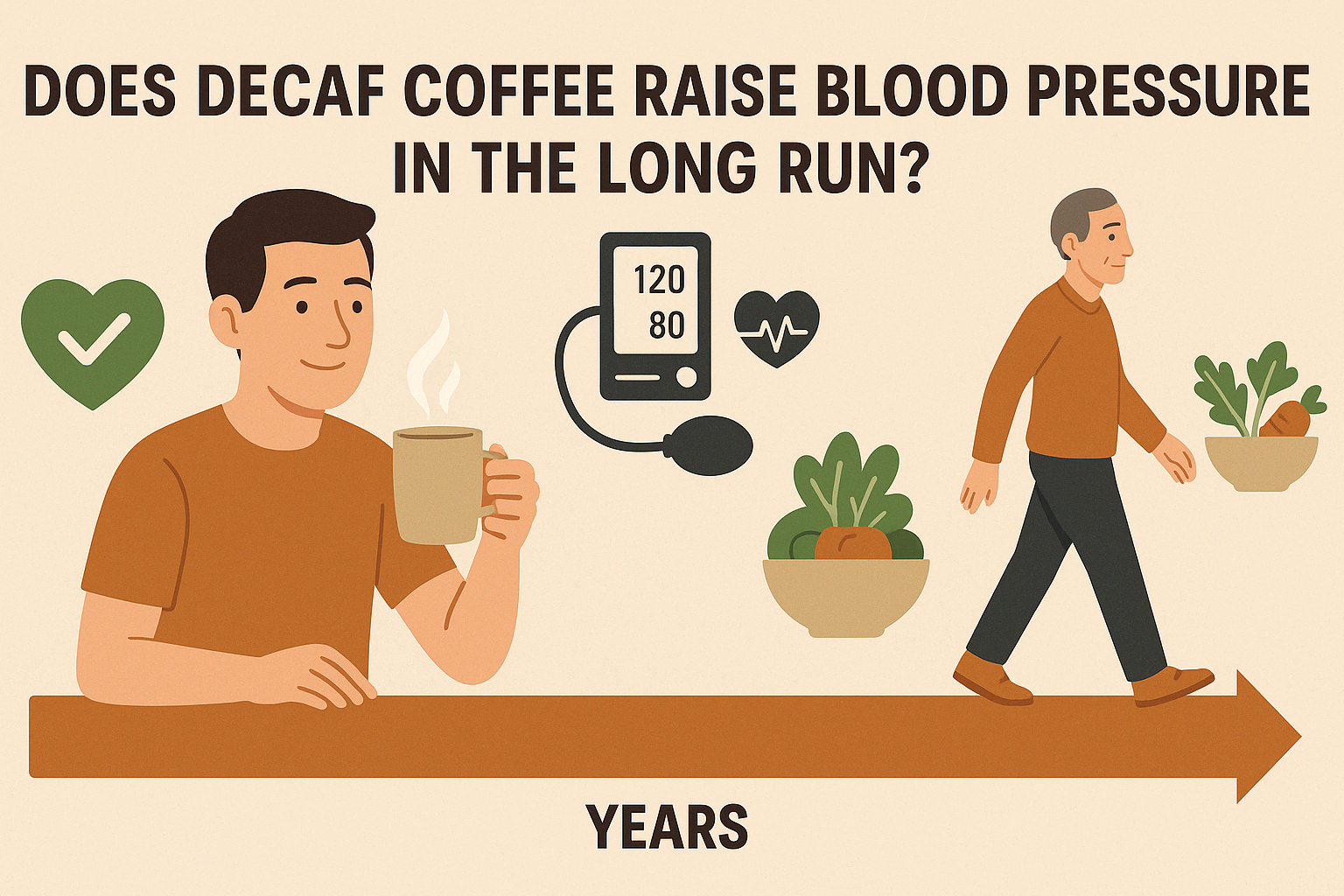
Does Decaf Coffee Raise Blood Pressure in the Long Run?
One of the most frequently asked questions among health-conscious coffee drinkers is whether decaf coffee affects blood pressure over time. Longitudinal studies tracking individuals over years have not demonstrated a strong link between decaf coffee consumption and elevated blood pressure. In fact, some large cohort studies have found that regular decaf coffee drinkers tend to have similar, if not slightly better, cardiovascular outcomes compared to non-coffee drinkers.
Part of this may be attributed to the antioxidant compounds still present in decaf coffee, which can help reduce inflammation and oxidative stress—two contributors to chronic hypertension and cardiovascular disease. While decaf coffee is not a cure-all or a replacement for a heart-healthy diet and lifestyle, it may be a small, enjoyable component of a well-rounded health regimen.
It’s also important to recognize that individual habits surrounding decaf coffee consumption often reflect broader health-conscious behaviors. People who choose decaf are often more mindful of their overall health, more likely to exercise regularly, and more attuned to dietary quality. These confounding variables make it difficult to isolate decaf coffee as a sole influence on blood pressure, but they underscore the value of considering overall lifestyle patterns.
Frequently Asked Questions: Does Decaf Coffee Raise Blood Pressure?
1. Can switching to decaf coffee help reduce my risk of developing hypertension?
Switching to decaf coffee may be a helpful step for those who are especially sensitive to caffeine or have been advised by a healthcare provider to reduce their stimulant intake. While regular coffee can cause a short-term rise in blood pressure due to its caffeine content, decaf coffee contains only trace amounts. For individuals with a family history of hypertension or early signs of cardiovascular disease, this switch might contribute to a more heart-conscious routine. However, it’s important to understand that the question of “does decaf coffee raise blood pressure” is complex, and many other lifestyle factors play a larger role in hypertension risk. Overall, switching to decaf alone won’t prevent high blood pressure but can be part of a more comprehensive health strategy.
2. Are there specific decaf coffee brands that are better for people with blood pressure concerns?
Yes, certain decaf brands use processes that are more heart-friendly than others. For example, decaf coffee made using the Swiss Water Process tends to retain fewer chemical residues compared to solvent-based methods. This can be particularly important for people monitoring their cardiovascular health. Additionally, organic decaf coffee brands often have fewer contaminants, which may provide some peace of mind for those concerned about how decaf coffee affects blood pressure indirectly. Choosing brands that prioritize low acidity and minimal processing can also reduce the chance of gastrointestinal stress, which occasionally impacts heart rate and pressure.
3. Does decaf coffee raise blood pressure more if consumed on an empty stomach?
Consuming any type of coffee—including decaf—on an empty stomach can alter the way the body absorbs certain compounds. While decaf coffee contains only minimal caffeine, its acids and polyphenols may cause mild gastrointestinal irritation in sensitive individuals. This can activate the sympathetic nervous system and possibly lead to a small, transient rise in blood pressure. While this effect is usually negligible, it may explain why some individuals feel uneasy after their morning brew. So, although the consensus says decaf coffee does not significantly affect blood pressure, drinking it with food may minimize even minor temporary effects.
4. Are there any long-term effects on blood pressure from drinking decaf coffee daily?
Current research indicates that long-term decaf consumption does not contribute to elevated blood pressure in the general population. In fact, some compounds in decaf coffee, such as chlorogenic acid, may even have mild antihypertensive properties by supporting blood vessel elasticity and reducing inflammation. Still, the answer to whether or not decaf coffee affects blood pressure over the long haul depends heavily on the individual’s overall diet, physical activity, and genetic predispositions. For people wondering “does decaf coffee raise blood pressure” chronically, the evidence remains largely reassuring. That said, more research is needed to explore potential cumulative effects in populations with specific cardiovascular vulnerabilities.
5. Can decaf coffee interfere with blood pressure medications?
While decaf coffee is generally considered safe for people on antihypertensive medications, it’s wise to monitor for any unusual side effects or interactions. Some compounds in coffee—such as tannins and certain polyphenols—can interfere with the absorption of medications if consumed too closely together. This doesn’t necessarily mean that decaf coffee raises blood pressure directly, but it may reduce the effectiveness of medication if timing isn’t carefully managed. Experts often recommend spacing out medication and coffee intake by at least 30 to 60 minutes to avoid these interactions. If you’re concerned that decaf coffee might affect blood pressure medication, consulting a pharmacist or physician is always the safest course.
6. Why do some people still experience heart palpitations after drinking decaf coffee?
Despite the low caffeine content, decaf coffee still contains enough to potentially cause mild stimulation in very sensitive individuals. Moreover, it includes a variety of active compounds, such as theobromine and theophylline, that may affect the cardiovascular system. People who report palpitations often ask, “can decaf coffee raise blood pressure?”—but the issue may be more related to how their nervous system reacts to these secondary compounds rather than blood pressure changes per se. In some cases, anxiety or a placebo-like expectation of side effects might also play a role. Tracking symptoms and switching brands or brewing methods can help identify if a specific type of decaf is the culprit.
7. Is it safe to drink decaf coffee after a cardiovascular event such as a heart attack?
For most individuals recovering from a heart attack, moderate consumption of decaf coffee is not only safe but might offer some cardiovascular benefits due to its antioxidant content. Still, the recovery period is a time when the body is more vulnerable to any form of stimulation. Although the answer to “does decaf coffee raise blood pressure” is generally no, heart patients should reintroduce any kind of coffee under medical supervision. It’s also crucial to avoid pairing decaf coffee with sugary pastries or high-fat dairy creamers, which can counteract potential health benefits. Personalized guidance from a cardiologist can help determine if and when decaf coffee fits into a recovery diet.
8. How does brewing method affect whether decaf coffee affects blood pressure?
The way decaf coffee is brewed can influence its chemical composition, and by extension, how it may affect the body. For instance, espresso-based decaf tends to be more concentrated in certain compounds than drip coffee or French press variations. Brewing time, water temperature, and bean grind all play a role in the levels of diterpenes and acids extracted into the cup. While these are unlikely to dramatically alter blood pressure, they might subtly affect vascular tone or digestion in sensitive individuals. Therefore, when people ask “does decaf coffee affect blood pressure,” it’s worth noting that preparation methods can create slight variations in physiological response.
9. Can decaf coffee consumption influence stress-related blood pressure spikes?
Stress is a major contributor to temporary increases in blood pressure, and how one’s body responds to stress can be influenced by diet and beverage intake. Although decaf coffee lacks the strong stimulatory effect of caffeine, it still has compounds that can slightly activate the central nervous system. If consumed during periods of intense stress, even decaf might slightly amplify cardiovascular arousal in sensitive individuals. However, this doesn’t mean decaf coffee raises blood pressure in a medically concerning way—it’s more about context and individual response. Using mindfulness techniques alongside heart-friendly beverages can be a more holistic approach to managing stress-induced blood pressure changes.
10. Are there any innovations in decaf coffee that cater specifically to people with cardiovascular concerns?
Yes, the specialty coffee industry has begun producing decaf blends tailored to health-conscious consumers, including those concerned about blood pressure. These innovations include ultra-low-caffeine options, beans bred for naturally low stimulant content, and blends infused with heart-friendly additives like magnesium or L-theanine. Some companies also perform third-party lab testing to ensure minimal pesticide and heavy metal residues, which can be reassuring for those seeking the cleanest option possible. As public interest grows in whether or not decaf coffee affects blood pressure, the market is responding with more nuanced and health-targeted offerings. Consumers looking for peace of mind should explore these new alternatives, especially if traditional decaf still causes discomfort or concern.
Final Thoughts: Does Decaf Coffee Affect Blood Pressure Enough to Matter?
After reviewing the available scientific evidence, practical considerations, and individual variability, the answer to the question “Does decaf coffee raise blood pressure?” is, for most people, a reassuring no. While some individuals with extreme sensitivities or specific medical conditions may experience minor effects, the vast majority of healthy adults can enjoy decaf coffee without significant cardiovascular concern.
The keyword phrases—does decaf coffee raise blood pressure, can decaf coffee raise blood pressure, and does decaf coffee affect blood pressure—reflect legitimate public interest in understanding the health implications of a widely consumed beverage. And in this case, science provides a comforting message: decaf coffee is generally safe for blood pressure when consumed in moderation.
As always, personalization and context are key. If you’re managing hypertension or cardiovascular disease, consult your healthcare provider before making major dietary changes. But for many, the rich aroma and smooth flavor of decaf coffee can remain a welcome part of the day, contributing not just to taste, but to a lifestyle of mindful, informed, and heart-conscious living.
Further Reading:
Coffee and your blood pressure
Effect of decaffeinated versus regular coffee on blood pressure. A 12-week, double-blind trial
Coffee lovers, rejoice! Drinking more coffee associated with decreased heart failure risk


